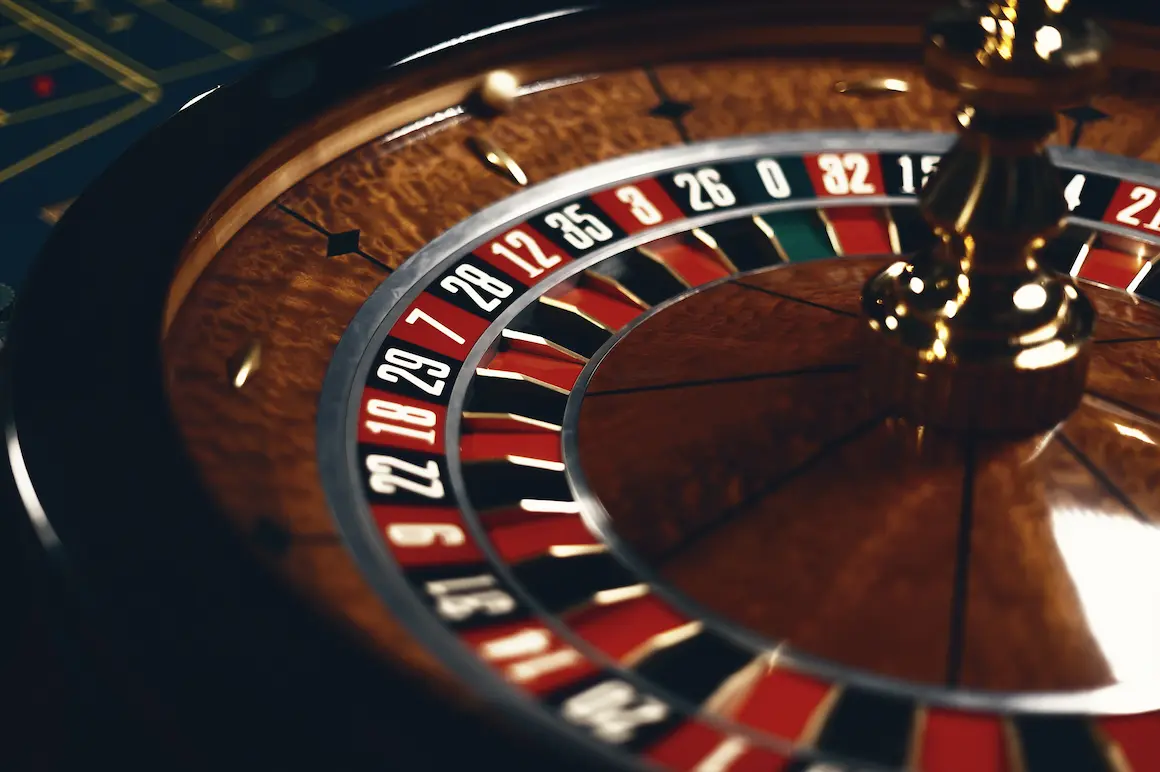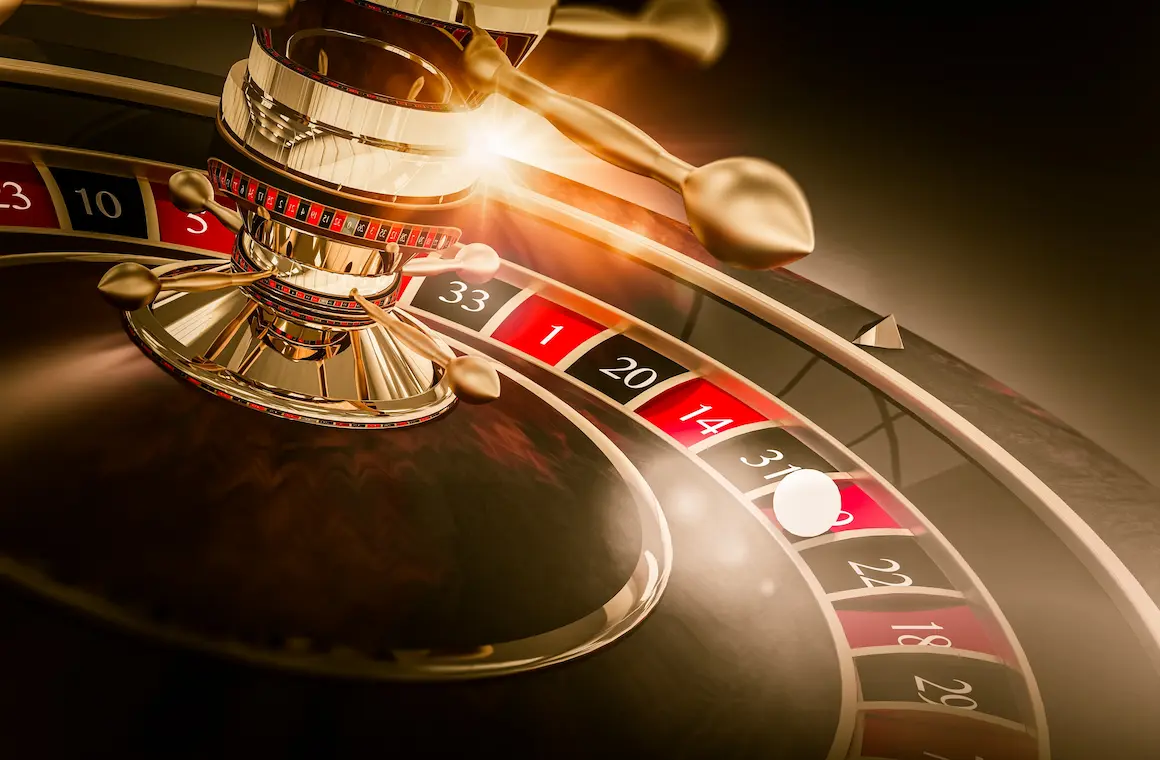All schoolchildren study Pascal’s law of liquid pressure. But not many people know that the scientist has created a small wheel for the experiments during his research, which is called a roulette nowadays.
1. The roulette and the leading light of Russian literature

Feodor Dostoevsky was no stranger to life’s vices and, on the wave of burgeoning popularity, went to relax at a resort in Wiesbaden, accompanied by a charming student Polina. While the writer spent time at the roulette, the young coquette found herself a more successful courter. The classic wasn’t successful at getting lucky and, to make things worse, had to pay off the debts in a hurry upon his return to the homeland. One obvious benefit of this story is that the whole situation inspired Dostoevsky to write his world-famous work “The Gambler”, which became a true masterpiece. By the way, in the original author’s version, the book was called “Roulettenburg”. His personal life worked out well, too: while working on the publication, Fyodor Dostoevsky fell in love with a stenographer, who later became his wife. He made an oath to his beloved wife that he would never sit down at the roulette table again – and he fulfilled his promise.
2. Strategists and tactics
Is there a system that will allow you to calculate the probability of winning? The best minds of our time, gifted mathematicians of the past, naive simpletons and talented charlatans of all sorts tried to find the answer to this question. But in most cases, they lost everything up to their last pair of pants, compromising their near-scientific research. However, an engineer from Britain, Billy Jaggers, came up with a brilliant thought: the wheel cannot be centred perfectly. It will have to take a barely noticeable careen, invisible to the human eye, and the ball will most often fall in this direction. The man took his friends and went to the gambling house. There, the proud Briton carefully wrote down all the options where the ball fell most often and finally he was able to figure it out. A few days later, his patience was rewarded: the casino lost 180 thousand dollars, and William, on the contrary, won them.
3. Happiness takes no account of time
You will not see even the most miniature clock on the wall or anywhere else unless you bring them with you to the casino. This way, having gotten into an enclosed space with the soft light, booze and the atmosphere in which the very air vibrates with excitement, you can end up staying at the roulette table for days (and leaving it only due to physiological needs). The visitors can enthusiastically spend money, their friends are happy with the excellent company in the company and also participate in the activities to the best of their ability, while the owners of the gambling house make a profit. But if a player will start to look at his watch over and over again and begin to remember that he is waited for at home by an elderly mother with her hands folded on the apron, a young wife and a bunch of kids, he will not make a profit for the casino. On the contrary, he will leave as soon as he has an opportunity to do so. Therefore, the two circles – the roulette wheel and the clock face – are in irreconcilable opposition.
4. Devil’s Wheel

Not that the players were dragged into the casino by the devil himself (although some visitors of the gambling houses for sure think so), but it’s in the sum of the numbers on the wheel. If you add up the numbers from each sector from 1 to 3, you will get a total of 666, a diabolical number. The luckiest person in the devil’s wheel game history was a casino visitor in Monte Carlo. In 1974, a citizen of Italian nationality came out of the gambling house richer by 1 million 920 thousand dollars. The Italian had good manners and knew that modesty is a virtue, and preferred to hide his (or maybe hers, who knows) name. The dealer, staff and the owner also shyly hid the visitor’s name. And the regulars of gambling houses still pass this fantastic story of someone else’s success onto each other.
5. Going downhill
Two hundred five million dollars can feed a small European country for a year; can equip the astronauts to fly into outer space, make all teeth in a mouth diamond and maintain a small army of top models for completing the menial work. But an American media magnate, named Watanabe, spent this amount of money playing roulette in something like ten months. Watanabe himself blames the casino’s unpleasant and surely specially trained staff that pours whiskey into the visitor’s glasses and incites a weak person to spend more. The American man decided to forge checks to pay for the expenses. This did not work out: American lawyers brought him to justice. Now Watanabe can contemplate the inadequate provision of services in the entertainment sector over 28 years. That’s how much he can spend behind bars.
He/Him
19
350 articlesKristaps is an expert in the field of online casinos. Since the age of 20, he has been interested in casino games; poker and blackjack are his favorites. Thanks to his studies and work experience, he has found himself a gambling critic and analyst. He likes to share his own authentic experience with the audience, so his articles are very informative. Kristaps' lifelong dream is to participate in a poker tournament in Las Vegas.
Nationality
latvian
Lives In
Latvia
University
University of Latvia
Degree
International Marketing and Advertising
More info on Kristaps Gauja






 kristaps.gauja@casinobaltics.com
kristaps.gauja@casinobaltics.com 
